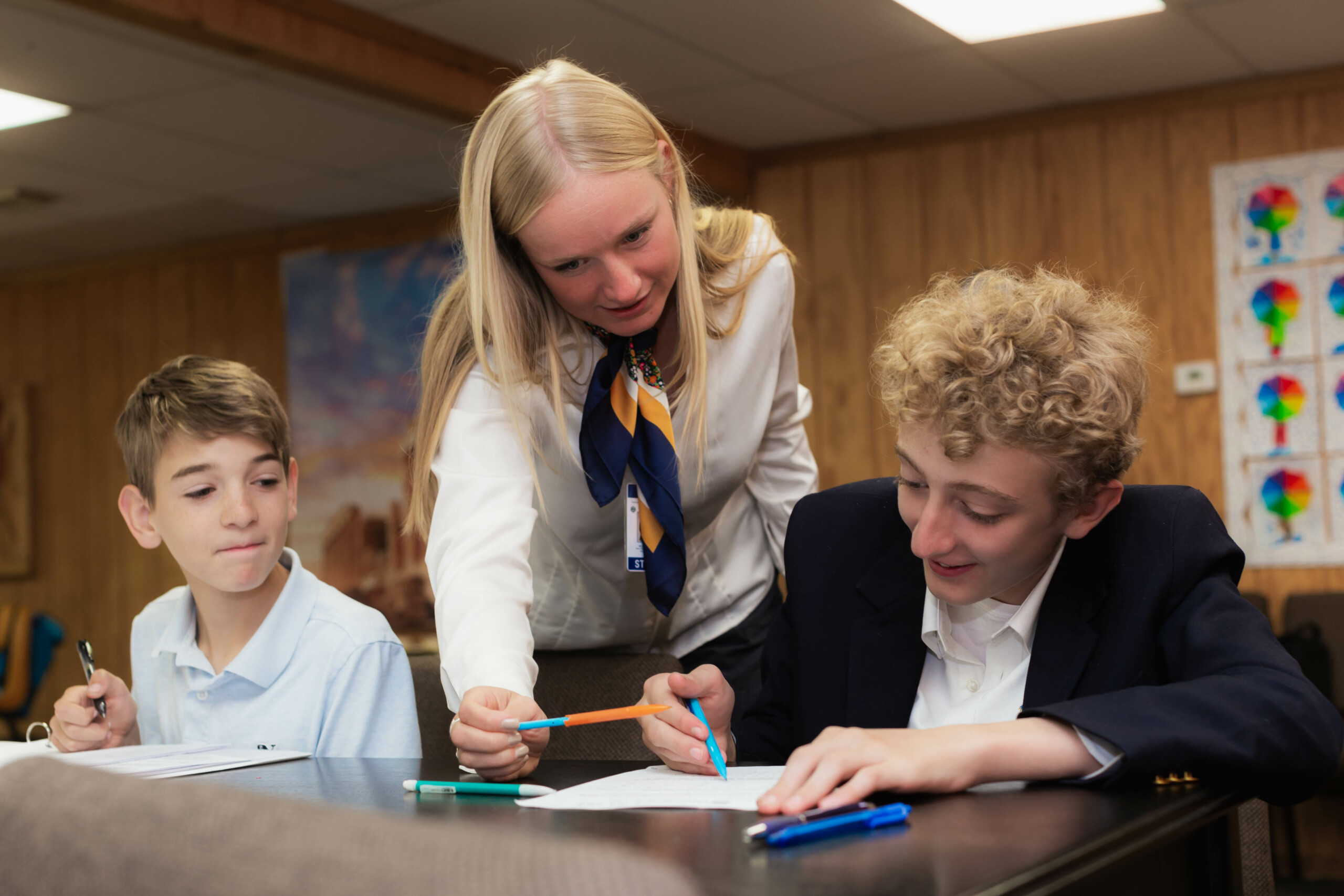Twelve Stones Logic School
The Mind as a Tool
Through courses in formal and informal logic as well as required application of logical thinking skills in other courses, students learn classic debate concepts and tools, such as formal syllogisms, fallacies, truth tables, and digital logic. This analytical focus is carried into all their studies, from mathematics and science to history and English. Students also find that the skills gained in logic classes are practical for everyday life.
Critical Evaluation Skills
Students interact with primary sources of literature using critical assessment from a biblical perspective. In literature, they examine and evaluate works from a wide range of genres, considering the author’s point of view and the cultural context in which the author wrote.

In history, students not only master important events and dates, but they also explore the consequences and meanings of events.
The study of Latin continues through the middle school years as students delve deeper into the structure and meaning of language. The emphasis at this level is on translation.
Foundations of Faith & Practice
Some of the highlights of the middle school Christian Studies program include seeing Jesus in the Old Testament and an introduction to apologetics by way of C.S. Lewis’s Mere Christianity. The analytical focus of this stage naturally flows into a critical assessment of opposing systems of thought from a biblical worldview. Through analyzing different systems of thought, a student’s faith and way of living are challenged and matured.

Fundamentals of Mathematics & Science
Students are introduced to conceptual mathematics as they advance into Pre-Algebra and Algebra I. Middle school students consider the nature of the scientific enterprise as they learn the fundamentals of the experimental method by forming hypotheses, collecting data and drawing conclusions from their experiments. In the springtime, teachers, parents and fellow students delight in the ingenious projects on display at our annual Science Fair.
